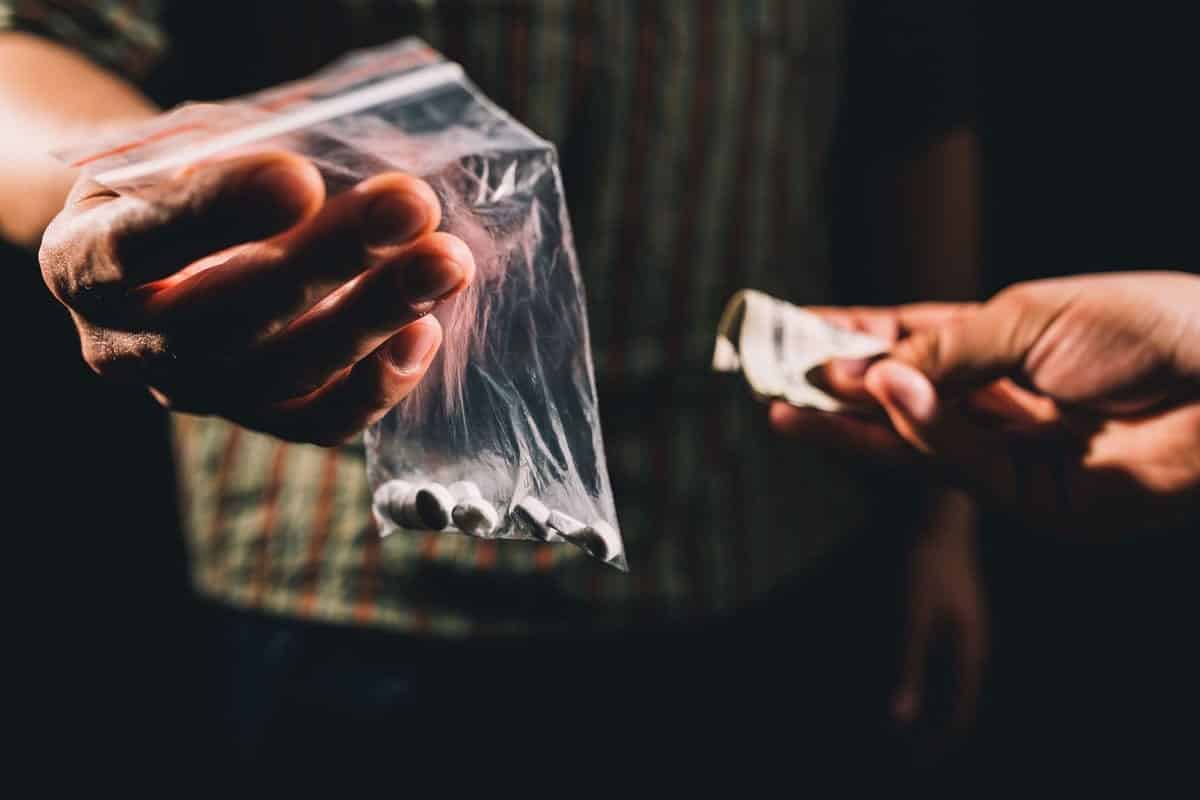- Home
- THE FIRM+
- Criminal Defense+
- CASE RESULTS
- AREAS WE SERVE+
- FAQ’s
- Blog
- Contact
AZHARI LLC BLOG

Posted By: Sami Azhari
Category:

Getting charged with a drug trafficking charge in the state of Illinois is intimidating enough – the state has enacted mandatory sentencing rules that guarantee jail time after a guilty verdict.
But what if your case is taken to federal court?
For all of the basic differences between state and federal court when it comes to drug trafficking charges, read below.
What is drug trafficking?
Drug trafficking does not just apply to one action. According to the federal definition, “drug trafficking” is the act of manufacturing, distributing, dispensing, or possessing with the intent to distribute any controlled substances.
It is not just moving drugs. Possessing an amount of drugs that is considered too large for personal use may also be charged as drug trafficking.
What makes it a federal crime?
Any crime, whether it involves controlled substances or not, can be considered a federal crime if:
- The crime crosses state lines
- The crime involves a federal organization (for example, the U.S. Postal Service)
Also, the federal court has the right to take any case that they have interest in from the state courts.
What makes federal crimes different from state crimes?
One of the most crucial differences between being tried in a federal court and being tried in a state or local court is the amount of evidence that can be used against you.
Most state or local courts will only hear testimony from local law enforcement officers, and will not have much access to other evidence. Federal cases tend to involve an exponentially higher amount of evidence, since federal organizations will be able to collect evidence and testify against you, and they generally have far greater resources.
For example, federal courts can hear testimony from DEA and FBI officers, while state courts cannot.
The penalties for federal and state offenses, as well as the incarceration facilities, also differ. And the legal procedures that you are required to follow are changed from state and local courts as well.
What are the penalties for federal drug trafficking?
The penalties for drug trafficking will depend on the amount of drugs involved, and your status as a drug trafficker, but will most likely involve mandatory jail time. The guidelines are as follows:
Trafficking 1 kg heroin; 5 kg cocaine; 280 g crack; 100 g PCP; 1 kg PCP mixture; 10g LSD; 1,000 kg marijuana; 1,000 marijuana plants; 50 g meth; 500 g meth mixture: a first offense has a mandatory sentence of 10 years in prison. If death or serious bodily harm resulted from your actions, a first offense has a mandatory sentence of 20 years in prison.
Trafficking 100 g heroin; 500 g cocaine; 28 g crack; 10 g PCP; 100 g PCP mixture; 1g LSD; 1,00 kg marijuana; 1,00 marijuana plants; 5 g meth; 50 g meth mixture: a first offense has a mandatory sentence of 5 years in prison. If death or serious bodily harm resulted from your actions, a first offense has a mandatory sentence of 10 years in prison.
Additional years can be added on to your sentence for charges of a continuing criminal enterprise, as well as for trafficking in the vicinity of a drug-free zone. A full list of mandatory sentences can be found here.
When it comes to federal sentencing, there is also no parole. Offenders must serve at least 85% of the sentence given to them in court, even if they have proved that they are no longer a threat to society long before their term is over.
What if I have already been convicted and I’m facing another charge?
Penalties for second and third offenses for the above offenses are increased to 20 years in prison, or a life sentence.
What are plea bargains?
A majority of federal drug cases do not even make it to trial. Before a trial begins, prosecutors will most likely ask you to take a plea bargain. A plea bargain is a deal whereby you plead guilty to the crime before the trial starts in order to receive a lighter sentence.
For example, say you are facing decades in prison for the crimes you are charged with. But the prosecutor offers you a plea deal in which you will only serve 4 years in jail if you plead guilty before trial.
Many people without proper representation who fear a guilty verdict take plea deals because they sound like a good idea. However, doing so means you don’t get to argue your case in federal court, and you don’t get a chance to prove your innocence. That doesn’t mean that plea deals aren’t the wise choice in some situations, but you need to understand your options and what you are agreeing to.
That means working with a federal drug trafficking attorney who knows how to build the strongest defense possible and poke holes in the prosecution’s case against you. Contact us today for a lawyer who can do just that.
About The Author:
Sami Azhari has spent the last decade protecting the freedom of individuals as a criminal defense attorney, first as an associate attorney at several law firms in Illinois and currently as the owner of his own practice, Azhari LLC. His passion and tenacity in helping those accused of serious criminal wrongdoings overcome their charges have earned him a “Superb” Avvo rating and nationwide recognition through his inclusion in the Top 100 Trial Lawyers and Top 40 Under 40. He has also been nominated an Illinois Rising Star for the 3rd consecutive year, an honor bestowed among 2.5% of lawyers in the state. At the invitation of professional legal organizations, Mr. Azhari frequently presents lectures on criminal law and DUI defense and also volunteers to represent indigent defendants in Statutory Summary Suspension hearings in Chicago.


























































